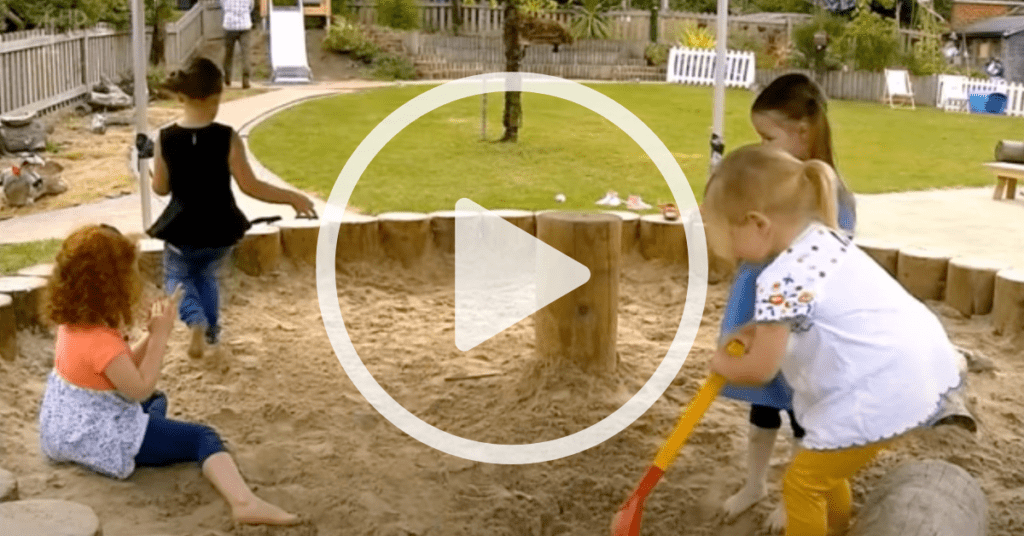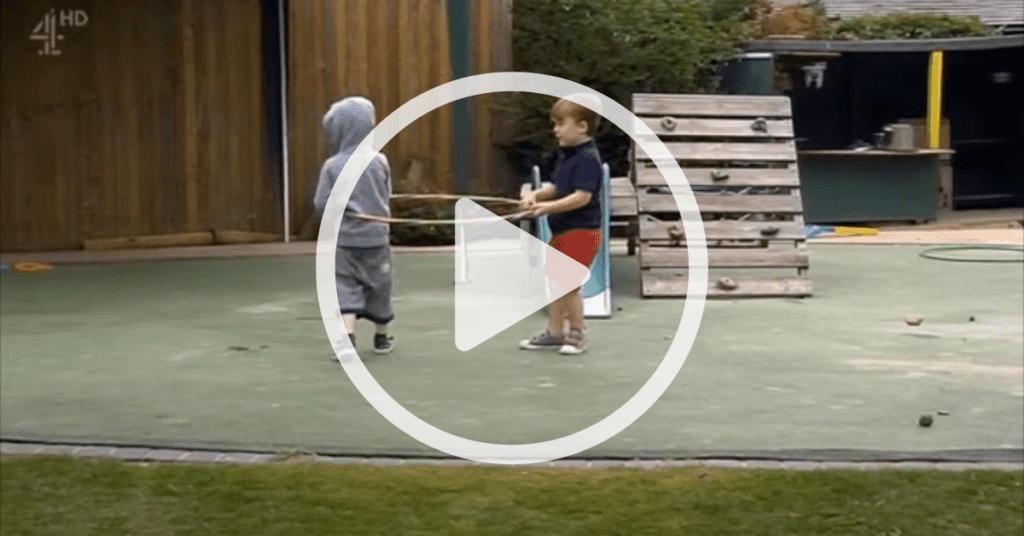For parents
How to Help Your Child Make Friends. 2023 science-backed advice
Fennies Child Development Expert Professor Sam Wass provides research-led, thought-provoking blog posts that help you discover ways to support your child. Sam is a father of two and a child psychologist and neuroscientist best known for Channel 4’s ‘Secret Life of a Four- and Five-Year-Old’s’. Sam provides Fennies with cutting-edge research, which is utilised through our internal staff training, ensuring your child gets the very best education.


“Do you want to come to my party? Pizza will be there. Sweetcorn will be there. And caramel!”
This clip of 4-year-old Luke on the Channel 4 series The Secret Life of 4-Year-Olds, captures the excitement children feel when making friends. But you can also see the vulnerability too. Everyone remembers a time when they’ve reached out to someone, and they haven’t reached back, and the memory of how hard that feels. Over the years of working on the series, we’ve observed countless young children develop friendships.
In this blog, I will analyse some of these moments and explain how children learn to develop their social skills and make friends.
How children develop friendships
Sometimes, things just click, and children develop warm, affectionate friendships simply based on a shared sense of fun. But often, things don’t.
I’ve seen countless examples of other children struggling to make friends – such as one boy who approached a group of children and launched into a long story, only for them to walk away one by one, with the last one leaving him all alone when he was still halfway through a sentence!
And another, whose desperation tactics included using a hula hoop to lasso the boy that he wanted to be friends with, and using it to drag him protesting around the playground.
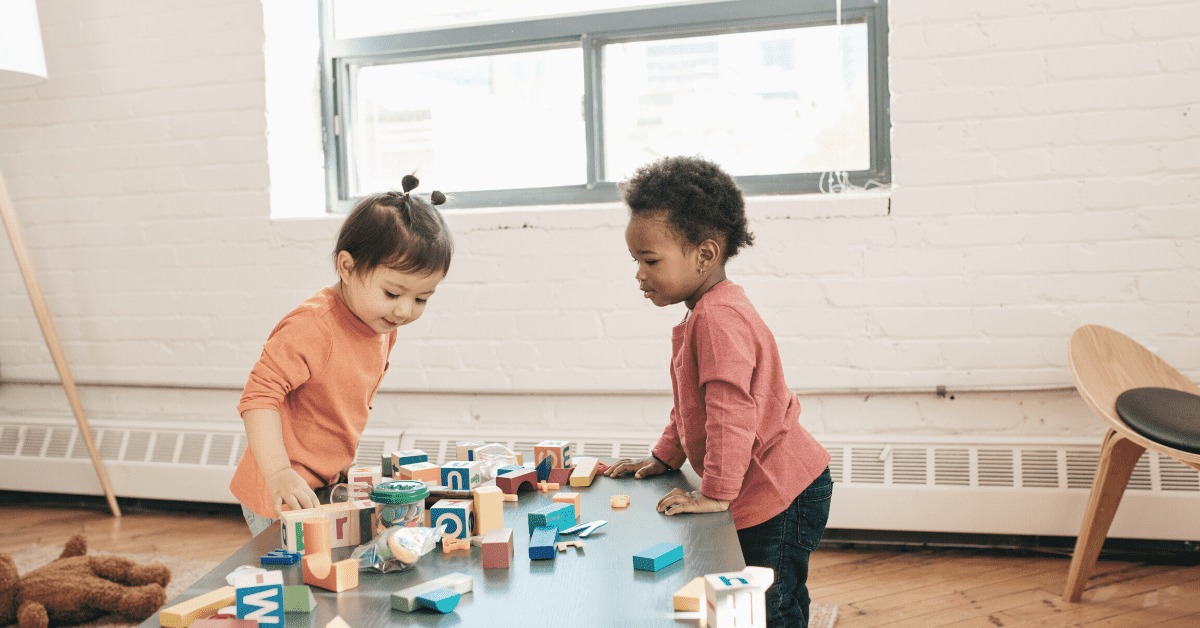

We’ve all been there, and many of us remember what it feels like. Making friends is often challenging for children for many reasons. First, there is a particular set of social skills that we need to form friendships, and like all skills, this needs to be learnt often through trial and error.
Second, making friends is something that needs resilience – the ability not to get upset when something goes wrong. Many children will take rejection as if it’s the end of the world, and as if they’re never going to have another friend again, quite naturally, because they don’t know otherwise. They don’t realise that there are always more opportunities just around the corner.
The challenges of making friends
There are lots of reasons why children can find making friends difficult. When we’re in a new group of people, one of the things that sometimes happens (that we’ve probably all done at least once, as adults, as well as children!) is to arbitrarily exclude one member of the group. I’ve seen this happen time and time again. It really is just about a new group trying to establish something in common such as ‘I know, let’s all talk about the fact that we’ve decided we don’t want to play with Jonny.’ But it can be really tough to watch, and it’s horrible to experience if you’re the one excluded.
Here’s one example of it from The Secret Life of 4-Year-Olds, when it happens to 4-year-old Tia. I still remember something like this happening to me when I was a child – it’s not something you can forget in a hurry!
Another reason making friends can be tough for young children is that different children’s ability to understand what a friendship is can often develop at radically different rates. Some younger children are very focused on physical play, and playing with objects, even through to 4-5 years and beyond. If they’re playing in the sandpit and another child comes along and starts playing too, then they’ll play in parallel, and call the other child their friend – but it doesn’t really go beyond that, and they’re generally not bothered if the other child walks off. The idea of good friends, in the adult sense, where you support each other and want to hear about each others’ news, is something some children learn much later on – and that’s perfectly normal.
But other children do want to have adult-like friends (where someone who supports them, and who they support back) from a much younger age. It can, again, be heartbreaking if you want a ‘proper’ friendship, but your friend, who might be exactly the same age as you, is only ready for parallel play – as in this instance, for example.
And a third issue, which I’ve seen regularly, is that some children are interested in having an adult-life friendship, but they don’t know what it is yet. These children are often fascinated and want to play with the idea of what being friends means. One minute they’ll say, ‘do you want to be my best friend?’ when they’ve only met the child for a minute. And then five minutes later, they’ll say, ‘I don’t want to be friends with you anymore’ just to see how they’ll react. For other children, who genuinely just want to be friends, this way of playing with the idea of friendship so arbitrarily can be confusing and upsetting.
How to help your child make friends
Here are some tips on how you can help your child to make new friends. The first three points are on how to prepare yourself emotionally, and the others are a few practical suggestions.
All aboard the emotional rollercoaster
While filming the series, we regularly saw children trying to make friends with other kids and also failing. It was often an emotional process! Part of this comes from how unprepared children are. As adults, we’ve learnt to prepare ourselves for being in a situation. We know, for example, that in a room full of people we don’t know, then we’re likely to be feeling slightly nervous. We also know that if we approach someone and try to talk to them, there are a whole range of reasons why they might not want to talk. But we know to prepare ourselves for a possible rejection which helps us to protect ourselves in that case.
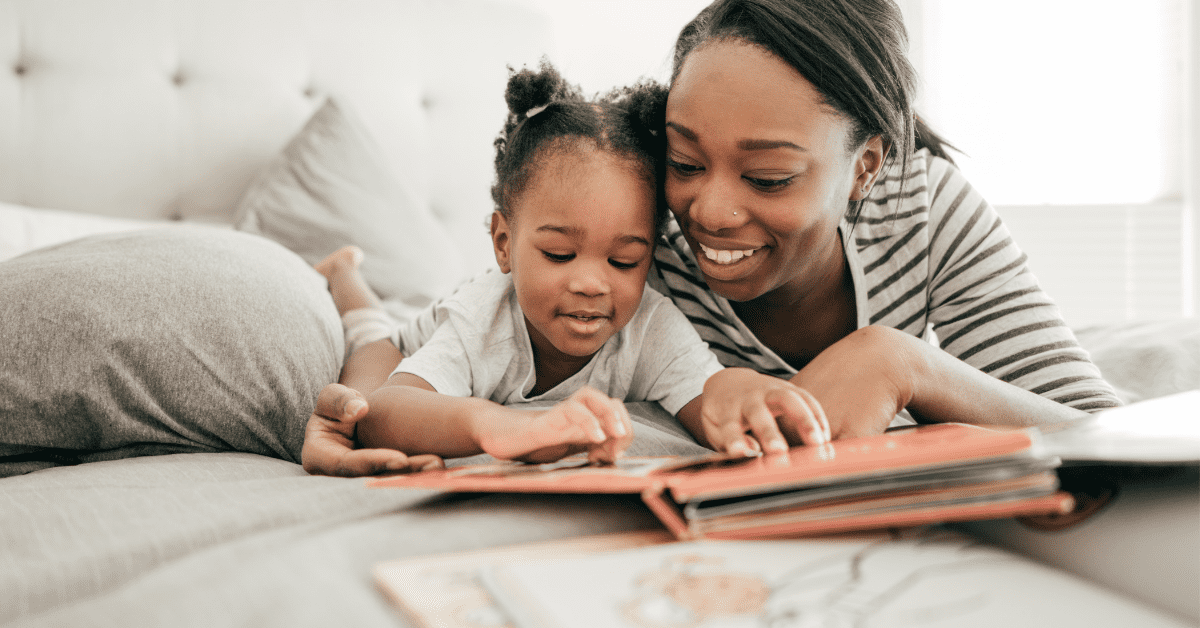

Young children, of course, do none of this preparation. When there’s a problem, they just walk right into it... bang! Firstly, it’s likely that they won’t even recognise they’re feeling nervous when they’re in a new situation with lots of other children attempting to form friends. We’re not born understanding what emotions are; this is something we have to learn.
This is something that you can help your child with. A lot of research suggests that recognising our own emotions can help us manage them. And talking to children can help them gain self-awareness about what they’re feeling and when. For example, talking in advance to your child about how they’re likely to feel when they meet a new group of children can help them to prepare for that situation. It also helps to emphasise that how they’re feeling is completely natural and that everyone is likely to be feeling the same.
Putting verbal labels on an emotion – saying ‘I know that it’s scary, going back to school’ or ‘I can see that you’re feeling worried about this’ – can also help a child understand and process these strange new emotions.
Rageena Tahir, Head of EYFS at Fennies, adds: “At Fennies, the environments are arranged in a way to give children spaces where they feel at ease to talk about how they are feeling. And there are ample opportunities for staff to introduce the language of feelings to children of all ages, for example, through role-play, stories and rhyme.”
Fake it until you make it!
It can also help to give your child some practical tips. For example, if you’re in a situation where you’re not feeling calm, simply pretend that you are. Evidence shows that pretending you’re calm (e.g. by standing upright, avoiding fast or sudden movements and doing deep, slow breaths) can actually help you to calm down!)
Don’t fall into the trap of ‘judging’ emotions. Labelling emotions as ‘bad’ or as something we don’t want to feel is proven to be an ineffective way of coping with negative emotions. Simply telling a child what they should feel (like “don’t be scared”) is not going to help them stop feeling scared. We can’t just inhibit emotions in this way, and this might even make children feel more scared.
Everybody’s in the same boat
Often you’re in a situation where there’s something you know your child wants to do long term, but which seems a bit scary in the short term – like approaching other children and starting a conversation. These are moments, as adults, we often force ourselves into but this is something children often find difficult to do. So, anything you can do to make this easier can be a good thing.
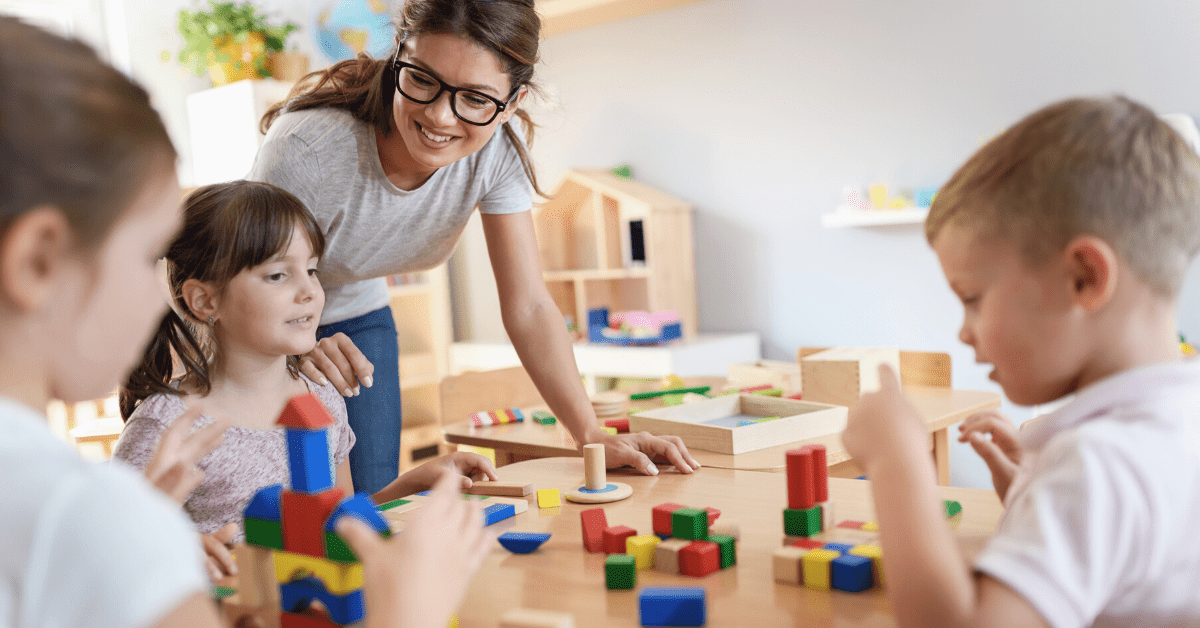

For example, when you’re feeling a bit nervous or shy, there’s often a tendency to assume that you’re the only one who’s feeling that way. But when you’re in a group of people who don’t know one another, it’s likely that most people feel the same. Being aware of this can really, really help – because it gives you something in common! All you have to do is simply go up to someone and say that you’re feeling nervous or worried.
Telling someone how you’re feeling can immediately make you feel better, but it’s also a great way of establishing with someone else that it’s something you’ve got in common. So if you’re feeling nervous, talk about it, don’t hide it! Confessing how we’re feeling can be a great ice breaker. This is a great tip you can share with your child, and it is especially helpful for introverted children.
When in a new situation, younger children often gravitate to the adults in a room, and try to make friends with them first before moving on to other children. This is because adults are more predictable and easy to read.
One thing I often see is that one child will go up to another child and ask them something, and the other child will just turn and walk away without answering. This can be quite upsetting and confusing if you’re on the receiving end (imagine if this happened to you at a party!)
So this is another thing that’s worth talking about to your child, to prepare them for it. You can say that it’s very likely not to be because you said something wrong. And if it’s someone new, then it’s not because they don’t like you, because they don’t know you yet! Explain that it’s much more likely to do with how the other child is feeling- maybe they were feeling shy, or they didn’t understand what you said to them, or they were feeling overwhelmed and needed to play on their own for a while. The main thing is that if they do it to you once it shouldn’t be a reason not to go up and ask them again later.
Ask questions!
Now we’re onto some practical tips that can help young children make friends. If you’re making friends with people, it’s generally a much better idea to start by asking them some questions and giving them an opportunity to talk about themselves, rather than going up and telling them about something that you’re interested in (you might laugh but I was at a party on Saturday night and found myself doing exactly that!)
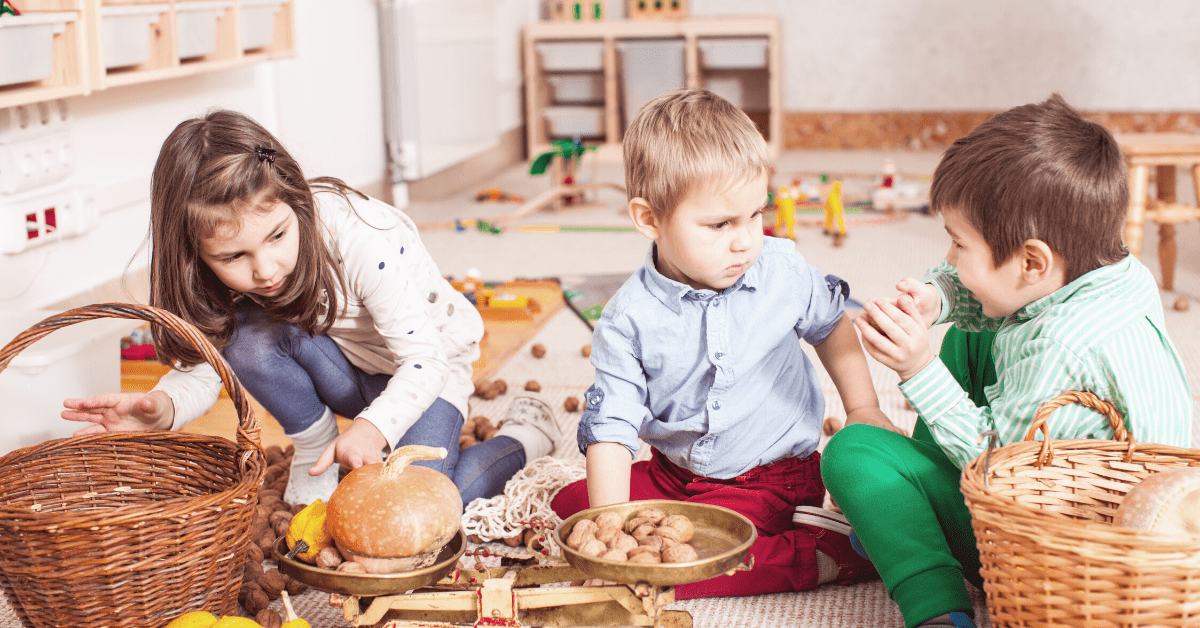

From there, with older children, you can develop this understanding further. For example, you start by asking a question about the other person and then respond to that by sharing something about yourself – such as finding something in common. Take turns, and build. This is something that I, a middle-aged scientist, still need to remind myself from time to time! But it’s something that the staff at Fennies is great at facilitating.
Practice playing skills
Another thing you can do that helps a child prepare for making friends links to how they play with other children. This is tricky as different children naturally play in very different ways. But one thing that almost all younger children find hard is shared imaginary play, like building an imaginary rocket ship together.
Many children find it tricky to understand that the imaginary picture that’s in their head isn’t the same as the imaginary picture that’s in their friend’s head (this is called theory of mind). For example, you might see one child piling boxes up and then another child comes along and adds a box to the side and then the first child says exasperatedly, ‘No, not there! That’s where the propellers are!’ as if what they’re imagining should immediately be obvious to everyone else.
Some children are naturally leaders and come up with the ideas for new games whilst others are naturally followers and like it when others come up with the ideas, so they can join in. You can help your child’s social skills and be self-aware about the fact that different children tend to play in different ways – and to consider whether they’re naturally a leader or a follower. This can help them to find friends who they might work well with.
Be a positive role-model
Many young children find it hard learning new people’s names (particularly if there’s a large group). But practically, it can be very helpful if you’re playing with other children to know their names. This is definitely something you can help your child learn at home.
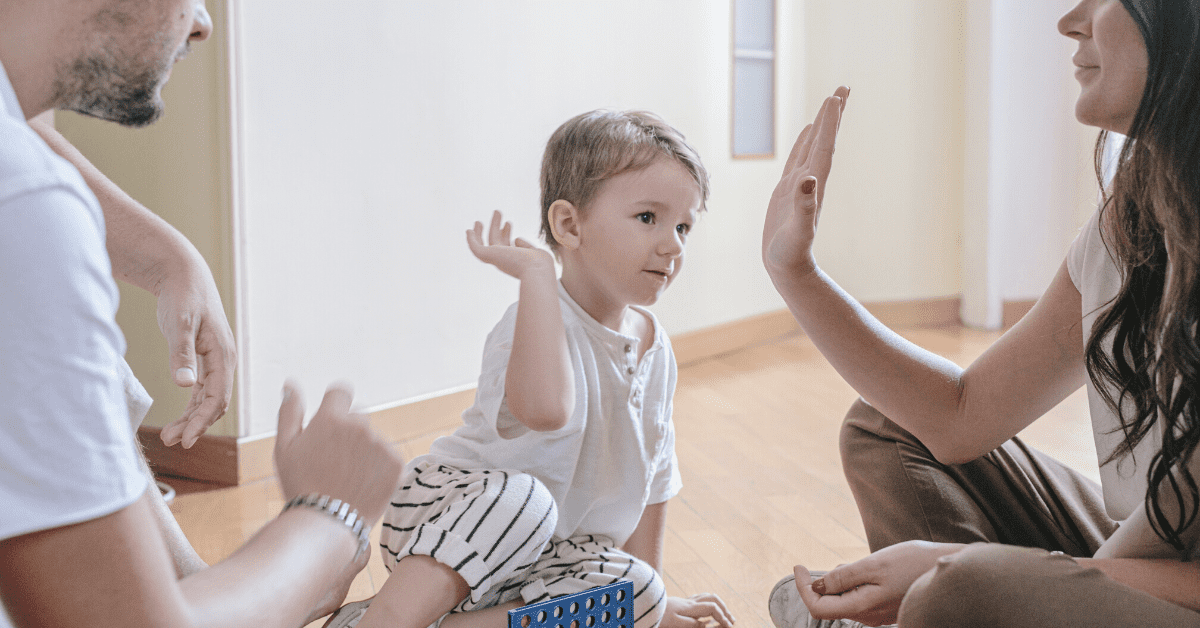

But by far, the most important thing is the attitude that you convey towards your child. It’s super important to be relaxed, understanding and full of humour when you talk to your child about making friends. Particularly, if they’ve raised the topic with you because they’re upset.
You should aim to be warm and empathetic about why making friends can be so challenging and how painful it can sometimes be. If you can even bring yourself to make fun of yourself in front of your child, then a few anecdotes about your own friendship failures over the years (everybody has some, I’m sure) can definitely help!


Sam Wass
Child Development Expert
Latest Posts
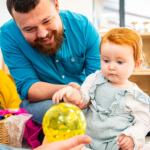

A Guide to Developmental Milestones for Parents – Supporting Children’s Growth


Innovative Outdoor Learning Activities for Early Years
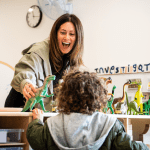

Effective Communication Strategies for Parents and Early Years Educators
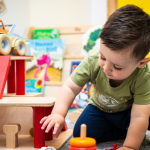

The Link between Play and Cognitive Development According to Research


Nurturing Healthy Eating Habits in Young Children – A PE Specialist’s Approach




